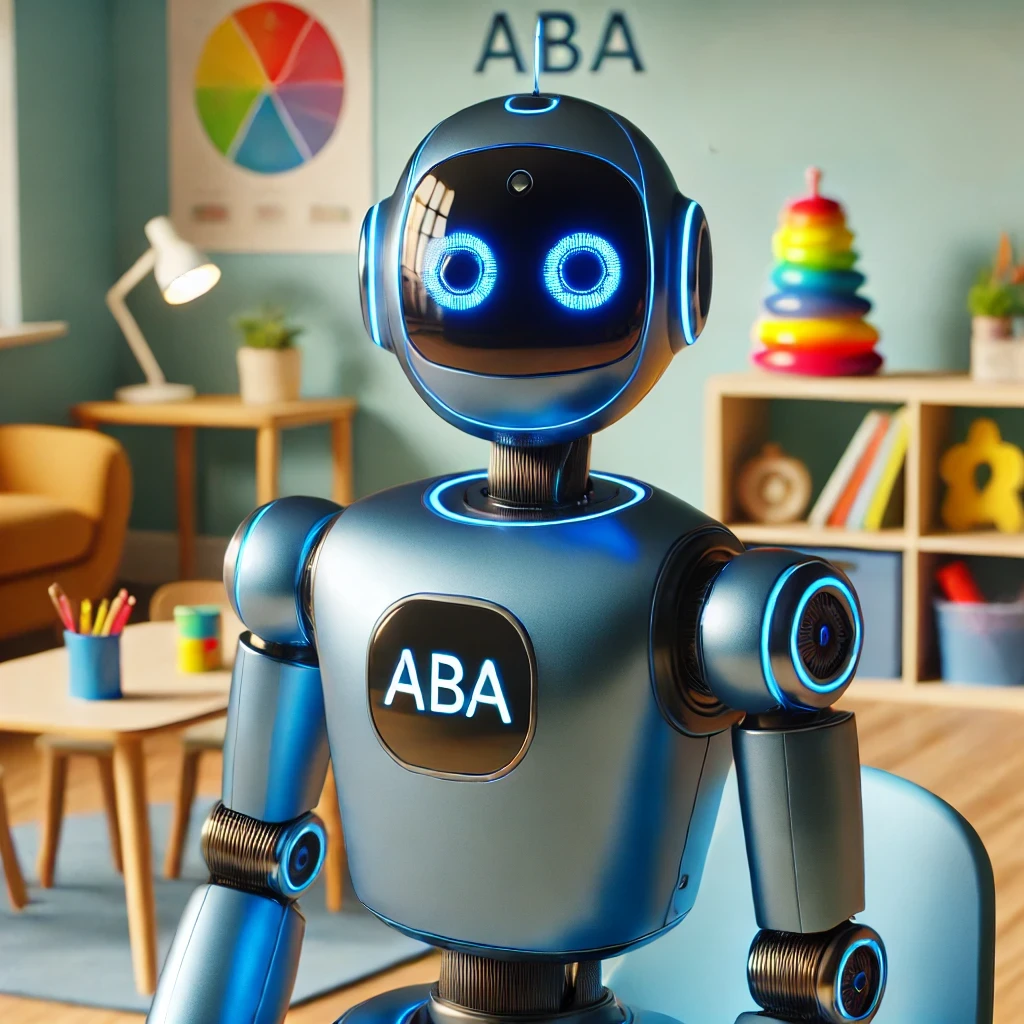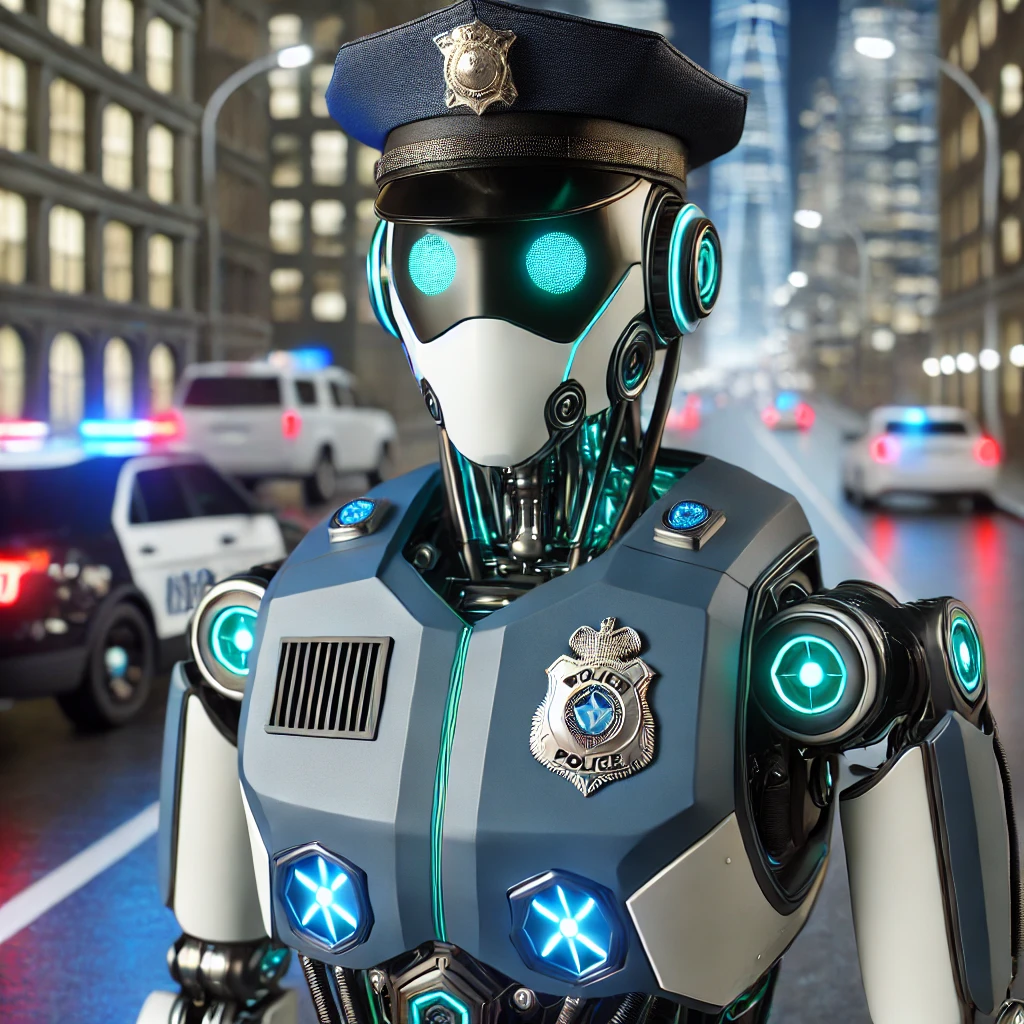How I Can Use Automation and Generative AI in My Career as a Marketing Manager
-
 Sam Tech
Sam Tech - 26 Jul, 2024

The landscape of marketing has been dramatically transformed by advancements in technology. Among these, automation and generative AI have emerged as powerful tools that can enhance the efficiency and effectiveness of marketing strategies. As a marketing manager, leveraging these technologies can significantly impact your ability to promote products or services and manage campaigns successfully. This article explores how automation and generative AI can be utilized to elevate your marketing efforts, streamline processes, and achieve better results.
Understanding Automation in Marketing
Automation in marketing refers to the use of technology to automate repetitive tasks, streamline workflows, and improve overall efficiency. By utilizing automation tools, marketing managers can focus on more strategic activities rather than getting bogged down by routine tasks.
Definition of Marketing Automation
Marketing automation involves the use of software platforms and technologies to execute marketing tasks and workflows automatically. This can include email marketing, social media posting, lead nurturing, and more.
Benefits of Marketing Automation
- Time-Saving: Automation reduces the time spent on manual tasks, allowing marketing managers to focus on strategy and creativity.
- Efficiency: Automated processes ensure tasks are completed accurately and consistently.
- Consistency: Automation ensures that marketing messages are delivered consistently across various channels.
Key Automation Tools
- HubSpot: Comprehensive marketing automation platform offering tools for email marketing, social media, and lead management.
- Marketo: Provides marketing automation software focused on lead management and B2B marketing.
- Mailchimp: Popular for email marketing automation, offering features for campaign management and audience segmentation.
Exploring Generative AI
Generative AI involves the use of machine learning algorithms to generate content and perform creative tasks. In marketing, generative AI can be used to create compelling content, design visuals, and even develop marketing strategies.
What is Generative AI?
Generative AI is a subset of artificial intelligence that uses algorithms to generate new data, content, or ideas based on existing data. This technology can produce text, images, music, and more, mimicking human creativity.
Applications in Marketing
- Content Creation: AI can generate blog posts, social media content, and product descriptions.
- Design and Visuals: AI tools can create graphics, logos, and promotional materials.
- Strategy Development: AI can analyze data to suggest marketing strategies and predict trends.
Benefits of Automation for Marketing Managers
Time-Saving
Automation significantly reduces the time required to complete repetitive tasks. Marketing managers can automate email campaigns, social media posts, and data analysis, freeing up time for strategic planning and creative thinking.
Efficiency
Automated processes are more efficient than manual ones. They reduce the risk of human error and ensure that tasks are completed on time, improving the overall efficiency of marketing campaigns.
Consistency
Automation ensures that marketing messages are delivered consistently. This consistency helps build brand recognition and trust among customers.
Benefits of Generative AI for Marketing Managers
Creativity
Generative AI can enhance creativity by providing new ideas and generating unique content. Marketing managers can use AI-generated content as a starting point and refine it to match their brand’s voice and style.
Personalization
AI enables personalized marketing at scale. By analyzing customer data, AI can create personalized content and recommendations, improving customer engagement and conversion rates.
Data Analysis
AI can process and analyze large volumes of data quickly and accurately. This capability allows marketing managers to gain insights into customer behavior, campaign performance, and market trends.
Automation Tools for Marketing Managers
Overview of Key Tools
Several automation tools are available to marketing managers, each offering a range of features to streamline various marketing tasks.
HubSpot
HubSpot is a comprehensive marketing automation platform that offers tools for email marketing, social media management, lead nurturing, and analytics. It’s known for its user-friendly interface and robust integration capabilities.
Marketo
Marketo focuses on lead management and B2B marketing. It provides tools for email marketing, campaign management, and customer engagement. Marketo’s advanced analytics capabilities help marketing managers measure and optimize campaign performance.
Mailchimp
Mailchimp is widely used for email marketing automation. It offers features for campaign management, audience segmentation, and performance tracking. Mailchimp’s intuitive design makes it accessible to users with varying levels of technical expertise.
Generative AI Tools for Marketing Managers
Overview of Key Tools
Generative AI tools are designed to assist with content creation, design, and strategy development. These tools leverage machine learning algorithms to generate creative content and insights.
OpenAI’s GPT-4
OpenAI’s GPT-4 is a powerful language model that can generate human-like text. Marketing managers can use GPT-4 to create blog posts, social media content, and product descriptions. Its ability to understand context and generate coherent text makes it a valuable tool for content creation.
Canva
Canva uses AI to assist with graphic design. It offers a wide range of templates and design elements, allowing marketing managers to create professional visuals quickly and easily. Canva’s AI features include design suggestions and automated resizing of graphics.
Copy.ai
Copy.ai is a generative AI tool that specializes in writing marketing copy. It can generate headlines, product descriptions, email campaigns, and more. Marketing managers can use Copy.ai to brainstorm ideas and produce content efficiently.
Integrating Automation in Campaign Management
Steps to Integration
Integrating automation into campaign management involves several steps to ensure a smooth transition and effective use of technology.
- Identify Tasks for Automation: Determine which tasks are repetitive and time-consuming. Common tasks include email marketing, social media posting, and lead nurturing.
- Select the Right Tools: Choose automation tools that align with your marketing needs and goals. Consider factors such as ease of use, features, and integration capabilities.
- Set Up Workflows: Define workflows for automated tasks. This includes setting up triggers, actions, and conditions for each task.
- Monitor and Optimize: Continuously monitor the performance of automated tasks and workflows. Use analytics to identify areas for improvement and make adjustments as needed.
Best Practices
- Start Small: Begin with a few key tasks and gradually expand automation to other areas.
- Test and Refine: Regularly test automated workflows to ensure they are functioning correctly. Refine workflows based on performance data and feedback.
- Stay Updated: Keep up with the latest automation tools and trends. This will help you leverage new features and capabilities to improve your marketing efforts.
Leveraging Generative AI for Content Creation
Techniques for Using Generative AI
Generative AI can be used to create a wide range of marketing content. Here are some techniques for leveraging this technology effectively.
- Idea Generation: Use AI tools to brainstorm content ideas. AI can suggest topics, headlines, and angles based on current trends and data.
- Content Drafting: Generate initial drafts of blog posts, articles, and social media content. AI-generated drafts can save time and provide a solid foundation for further refinement.
- Personalization: Create personalized content for different segments of your audience. AI can analyze customer data to generate tailored messages and recommendations.
- Visual Content: Use AI tools to create graphics, infographics, and videos. These tools can generate visual content quickly and ensure it aligns with your brand’s style.
Examples of AI-Generated Content
- Blog Posts: AI can generate blog posts on various topics, providing a starting point for further editing and refinement.
- Social Media Posts: AI tools can create engaging social media content, including captions, hashtags, and visuals.
- Product Descriptions: AI can generate detailed and persuasive product descriptions, highlighting key features and benefits.
Enhancing Customer Segmentation with AI
Methods for Customer Segmentation
AI can enhance customer segmentation by analyzing large datasets and identifying patterns and trends. Here are some methods for using AI in customer segmentation.
- Behavioral Segmentation: Analyze customer behavior data, such as purchase history and website interactions, to segment customers based on their actions. 2
. Demographic Segmentation: Use AI to segment customers based on demographic data, such as age, gender, and location. 3. Psychographic Segmentation: AI can analyze customer interests, values, and lifestyles to create psychographic segments. 4. Predictive Segmentation: Use AI to predict future customer behavior and segment customers based on these predictions.
Tools for Customer Segmentation
- Salesforce: Salesforce offers AI-powered tools for customer segmentation, allowing marketing managers to create detailed customer profiles and target segments effectively.
- HubSpot: HubSpot’s CRM includes AI features for customer segmentation, helping marketing managers identify and target key audience segments.
- Google Analytics: Google Analytics provides AI-driven insights into customer behavior, enabling marketing managers to segment customers based on various criteria.
Personalizing Customer Experience Using AI
Approaches to Personalization
AI enables personalized marketing at scale. Here are some approaches to personalizing the customer experience using AI.
- Dynamic Content: Use AI to create dynamic content that changes based on the user’s behavior and preferences.
- Personalized Recommendations: AI can analyze customer data to generate personalized product and content recommendations.
- Targeted Messaging: AI allows for the creation of targeted marketing messages based on customer segments and individual preferences.
- Real-Time Personalization: AI can deliver personalized experiences in real-time, such as personalized website content and offers.
Case Studies
- Netflix: Netflix uses AI to personalize content recommendations for its users. The AI analyzes viewing history and preferences to suggest movies and shows.
- Amazon: Amazon’s AI-driven recommendation engine suggests products based on customer behavior and purchase history, enhancing the shopping experience.
- Spotify: Spotify uses AI to create personalized playlists for its users. The AI analyzes listening habits to curate music that matches the user’s tastes.
Optimizing Social Media Marketing with Automation
Tools for Social Media Automation
Social media automation tools can help marketing managers streamline their social media marketing efforts. Here are some popular tools.
- Hootsuite: Hootsuite allows for scheduling and managing social media posts across multiple platforms. It also offers analytics and monitoring features.
- Buffer: Buffer provides tools for scheduling social media posts, tracking performance, and engaging with followers.
- Sprout Social: Sprout Social offers social media management tools, including scheduling, analytics, and social listening features.
Strategies for Automation
- Scheduled Posting: Use automation tools to schedule social media posts in advance, ensuring consistent posting without manual effort.
- Automated Responses: Set up automated responses for common customer inquiries and interactions.
- Content Curation: Use AI to curate and share relevant content from around the web, keeping your social media channels active and engaging.
Utilizing AI for Email Marketing
Tools for AI-Driven Email Marketing
AI-driven email marketing tools can enhance the effectiveness of your email campaigns. Here are some tools to consider.
- Mailchimp: Mailchimp’s AI features include predictive analytics, personalized recommendations, and automated email workflows.
- ActiveCampaign: ActiveCampaign offers AI-powered email marketing tools for segmentation, personalization, and automation.
- Sendinblue: Sendinblue provides AI-driven email marketing features, including predictive send times and personalized content recommendations.
Tactics for Effective Email Marketing
- Personalization: Use AI to personalize email content based on customer data and behavior.
- Segmentation: Segment your email list using AI to target specific customer groups with tailored messages.
- A/B Testing: Use AI to optimize email campaigns through A/B testing, identifying the most effective subject lines, content, and send times.
Improving SEO with AI and Automation
Keyword Analysis
AI tools can enhance keyword analysis by identifying high-performing keywords and suggesting new ones. These tools can analyze search trends, competitor keywords, and user intent.
Content Optimization
AI can optimize content for SEO by analyzing and suggesting improvements. Tools like Surfer SEO and Clearscope use AI to provide real-time recommendations for content optimization.
AI-Powered SEO Tools
- Moz: Moz offers AI-driven tools for keyword research, site audits, and rank tracking.
- SEMrush: SEMrush provides AI-powered SEO tools for keyword analysis, content optimization, and competitive analysis.
- Ahrefs: Ahrefs uses AI to offer insights into backlinks, keyword rankings, and site performance.
Automating Data Analysis and Reporting
Tools for Automation
Automating data analysis and reporting can save time and improve accuracy. Here are some tools that can help.
- Google Data Studio: Google Data Studio allows you to create automated reports and dashboards using data from various sources.
- Tableau: Tableau offers AI-driven data analysis and visualization tools, helping you make sense of complex data sets.
- Power BI: Microsoft’s Power BI provides tools for automating data analysis and creating interactive reports.
Benefits of Automation
- Accuracy: Automated data analysis reduces the risk of human error, ensuring accurate results.
- Efficiency: Automation speeds up the data analysis process, providing insights faster.
- Consistency: Automated reporting ensures consistent presentation of data, making it easier to track performance over time.
AI-Driven Predictive Analytics for Marketing
Tools for Predictive Analytics
Predictive analytics tools use AI to forecast future trends and outcomes based on historical data. Here are some tools to consider.
- IBM Watson: IBM Watson offers predictive analytics capabilities for marketing, including customer behavior analysis and trend prediction.
- SAS: SAS provides AI-driven predictive analytics tools for various industries, including marketing.
- RapidMiner: RapidMiner offers predictive analytics software that uses machine learning to analyze data and make predictions.
Examples of Predictive Analytics in Marketing
- Customer Lifetime Value: AI can predict the lifetime value of customers, helping marketing managers focus on high-value segments.
- Churn Prediction: Predictive analytics can identify customers at risk of churning, allowing for targeted retention strategies.
- Sales Forecasting: AI can forecast sales based on historical data and market trends, helping marketing managers plan and allocate resources effectively.
Challenges and Solutions in Implementing Automation
Common Issues
Implementing automation in marketing can present several challenges. Here are some common issues and their solutions.
- Complexity: Automation tools can be complex to set up and use. Solution: Start with simple tasks and gradually expand to more complex workflows.
- Data Quality: Poor data quality can impact the effectiveness of automation. Solution: Ensure data is clean and up-to-date before implementing automation.
- Integration: Integrating automation tools with existing systems can be challenging. Solution: Choose tools with robust integration capabilities and seek support from vendors if needed.
Overcoming Barriers
- Training: Provide training for your team to ensure they understand how to use automation tools effectively.
- Testing: Regularly test automated workflows to identify and address any issues.
- Feedback: Gather feedback from your team and customers to continuously improve your automation processes.
Ethical Considerations in AI and Automation
Privacy
AI and automation raise concerns about data privacy. Marketing managers must ensure that customer data is collected and used ethically and in compliance with regulations such as GDPR and CCPA.
Bias
AI algorithms can be biased if they are trained on biased data. It’s important to monitor AI systems for bias and take steps to mitigate it.
Transparency
Marketing managers should be transparent about the use of AI and automation. Customers should be informed about how their data is used and how AI impacts their interactions with the brand.
Future Trends in AI and Automation in Marketing
Emerging Technologies
Several emerging technologies are poised to shape the future of AI and automation in marketing. These include:
- Voice Search Optimization: AI can optimize content for voice search, helping brands reach customers using voice-activated devices.
- Augmented Reality: AI-driven augmented reality experiences can enhance customer engagement and provide interactive marketing opportunities.
- Chatbots: AI-powered chatbots are becoming more sophisticated, providing personalized customer service and support.
Predictions
- Increased Personalization: AI will enable even more personalized marketing experiences, with real-time customization based on customer behavior.
- AI-Driven Creativity: Generative AI will continue to advance, providing new opportunities for creative content and design.
- Data-Driven Decision Making: AI will play a larger role in data analysis, helping marketing managers make more informed decisions.
Conclusion
Automation and generative AI are transforming the marketing landscape, offering numerous benefits for marketing managers. By leveraging these technologies, you can streamline processes, enhance creativity, and deliver personalized experiences to your customers. Embrace the power of AI and automation to stay ahead in the competitive world of marketing.
FAQs
How can automation improve my marketing campaigns? Automation can improve your marketing campaigns by saving time, increasing efficiency, and ensuring consistency in your marketing efforts.
What are some popular automation tools for marketing managers? Popular automation tools include HubSpot, Marketo, and Mailchimp, each offering a range of features to streamline marketing tasks.
How can generative AI help with content creation? Generative AI can assist with content creation by generating ideas, drafting initial content, and personalizing messages for different audience segments.
What is the role of AI in customer segmentation? AI enhances customer segmentation by analyzing large datasets to identify patterns and trends, allowing for more precise and effective targeting.
How can AI personalize the customer experience? AI can personalize the customer experience by creating dynamic content, personalized recommendations, and targeted messaging based on customer data and behavior.
What are the ethical considerations when using AI and automation in marketing? Ethical considerations include ensuring data privacy, avoiding bias in AI algorithms, and maintaining transparency about the use of AI and automation.


